The English language is a fascinating blend of words borrowed from various languages, each with its unique pronunciation rules and spelling quirks. While this diversity enriches the language, it also makes certain words notoriously difficult to pronounce and spell. Whether you’re a native speaker or an English learner, these challenging words can test your linguistic skills. Below is a curated list of the top 100 hardest English words to pronounce and spell, along with their meanings and phonetic pronunciations.
Why Are These Words So Difficult?
Several factors make these words particularly challenging:
- Silent Letters: Words like “mnemonic” have silent letters that confuse pronunciation.
- Uncommon Stress Patterns: Some words, such as “anemone,” have stress patterns that differ from typical English norms.
- Borrowed Origins: Many of these words come from French, Latin, or other languages, bringing unique pronunciation rules.
- Irregular Spelling: The lack of phonetic consistency in English makes spelling unpredictable.
The List: Top 100 Hardest Words
Here’s a comprehensive list of 100 difficult words, categorized for clarity:
1. Words with Silent Letters

- Mnemonic (nuh-MON-ik): A device to aid memory.
- Subtle (SUH-tl): Delicate or understated.
- Pneumonia (noo-MOH-nyuh): A lung infection.
- Gnome (NOHM): A mythical creature.
- Psoriasis (suh-RYE-uh-sis): A skin condition.
Also Read – Nicknames In Spanish: 100+ Cute, Funny Spanish Nicknames
2. Words with Irregular Stress Patterns
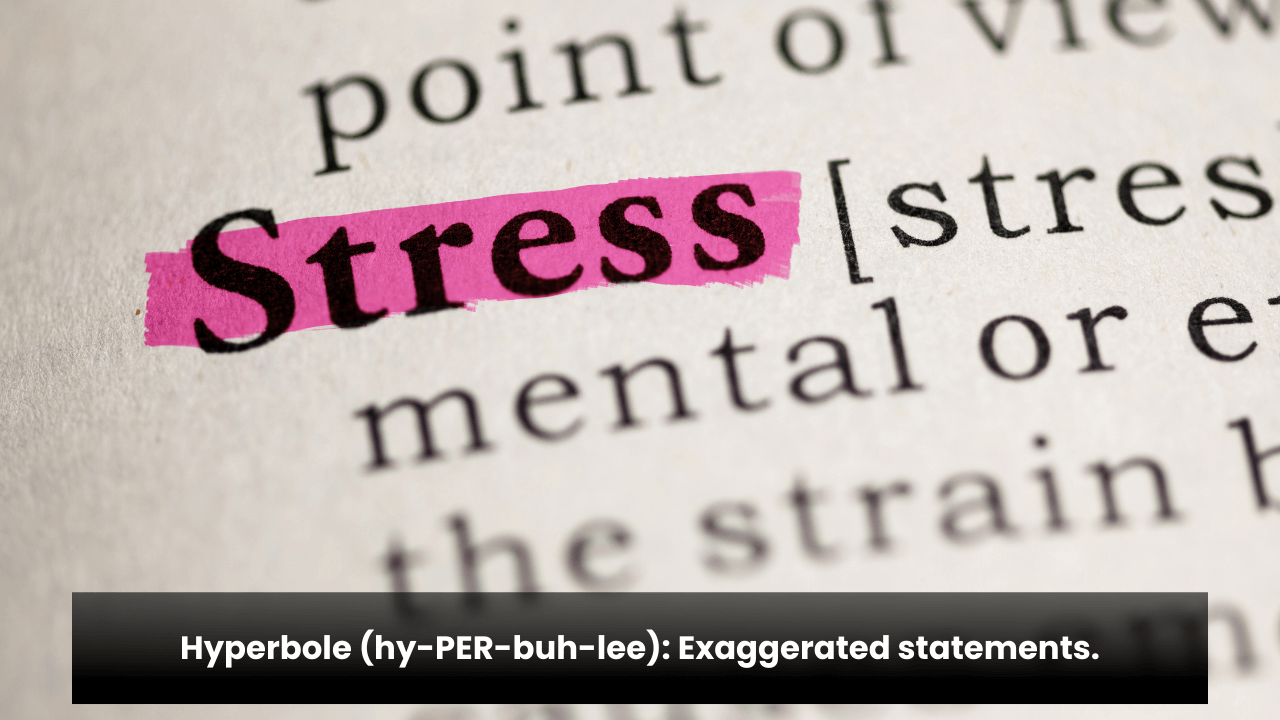
- Anemone (uh-NEM-uh-nee): A sea creature or flower.
- Epitome (ih-PIT-uh-mee): A perfect example.
- Hyperbole (hy-PER-buh-lee): Exaggerated statements.
- Onomatopoeia (on-uh-MAT-uh-PEE-uh): Words that imitate sounds.
- Mischievous (MIS-chuh-vus): Causing trouble playfully.
Also Read – 100+ Spanish Slang Words & Phrases Every Learner Must Know
3. Borrowed Words

- Worcestershire (WUHS-ter-sheer): A county in England and a sauce.
- Rendezvous (RAHN-day-voo): A meeting point.
- Genre (ZHAHN-ruh): A category of art or literature.
- Bourgeoisie (BOOR-zhwah-ZEE): The middle class.
- Chthonic (THON-ik): Relating to the underworld.
Also Read – 112 Spanish Words And Phrases to learn for Beginners
4. Words with Uncommon Spellings
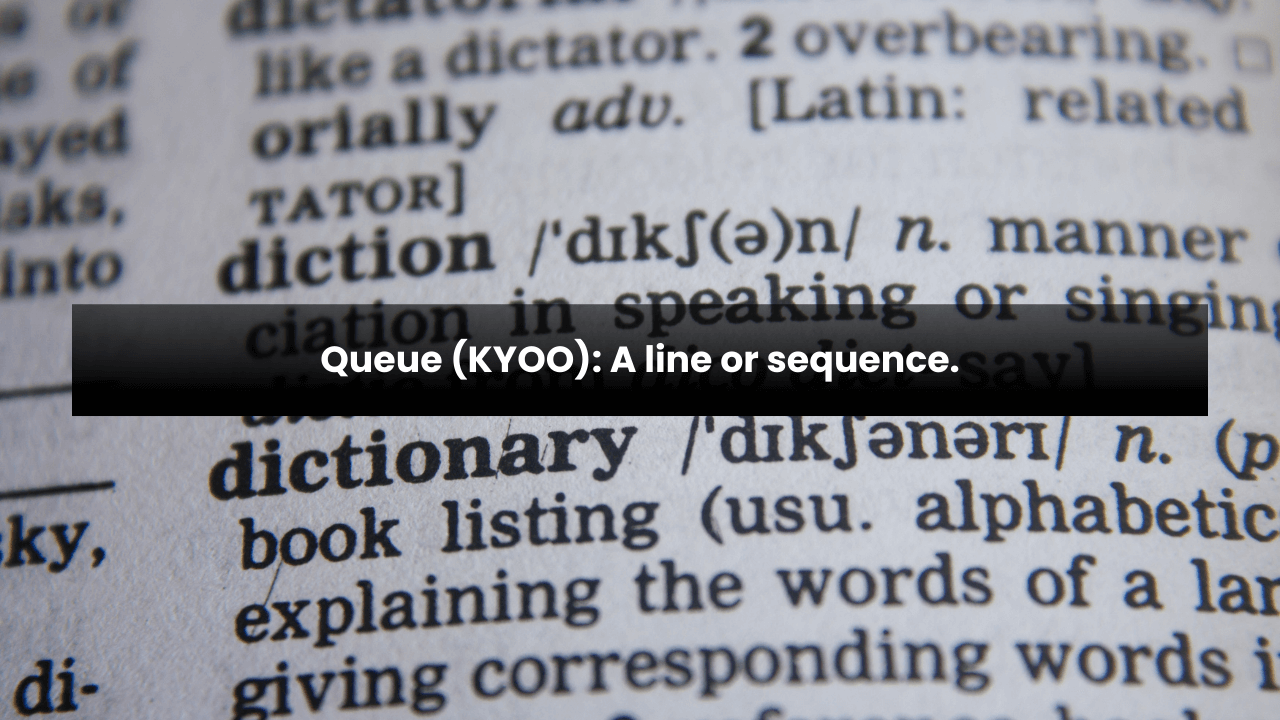
- Colonel (KUR-nuhl): A military rank.
- Queue (KYOO): A line or sequence.
- Rhythm (RITH-um): A repeated pattern of sound or movement.
- Pharaoh (FAIR-oh): An ancient Egyptian ruler.
- Island (EYE-lund): Land surrounded by water.
Also Read – How to Say “I Love You” in French: 80 Romantic Phrases
5. Compound and Long Words

- Antidisestablishmentarianism (AN-ti-dis-es-tab-lish-men-TAR-ee-an-iz-em): Opposition to the disestablishment of the Church of England.
- Floccinaucinihilipilification (FLOK-sin-aw-si-ni-hi-li-pil-i-fi-KAY-shun): The act of considering something worthless.
- Hippopotomonstrosesquipedaliophobia (HIP-oh-POT-oh-MON-stroh-SES-kwee-ped-AH-li-oh-pho-bee-ah): Fear of long words.
Also Read – 111+ Hilarious English Tongue Twisters For Kids & Adults
6. Commonly Mispronounced Words
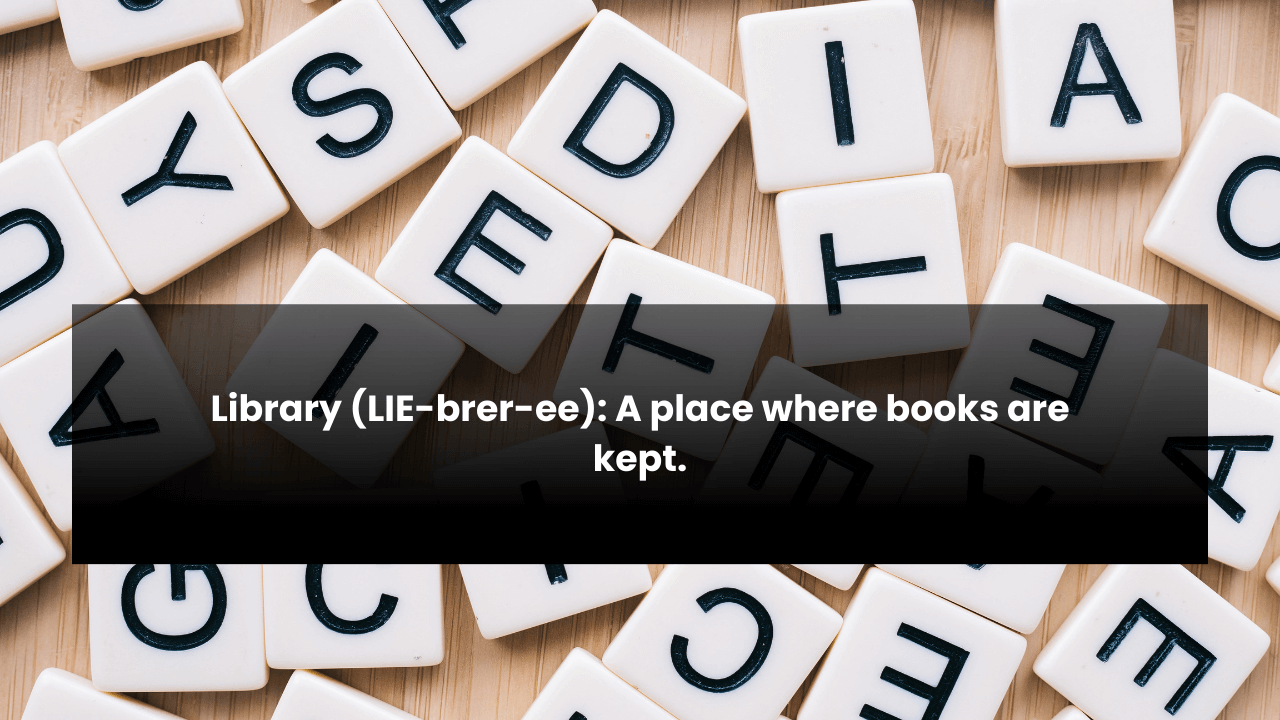
- February (FEB-roo-air-ee): The second month of the year.
- Comfortable (KUHM-fur-tuh-bl): Providing ease or relaxation.
- Library (LIE-brer-ee): A place where books are kept.
- Espresso (ES-pres-oh): A strong coffee brew.
- Pronunciation (pro-NUN-see-ay-shun): The way a word is spoken.
Also Read – How To Say “Good Morning” In Spanish (Beyond “Buenos Días”)
7. Tricky Homophones
- Flour/Flower: Both pronounced as “FLAU-er.”
- Affect/Effect: Affect is a verb; effect is a noun.
Also Read – Unique Ways To Say Thank You And You’re Welcome In English
8. Scientific Terms
- Otorhinolaryngologist (OH-toh-RYE-noh-LAR-in-GOL-oh-jist): An ear, nose, and throat doctor.
- Pneumonoultramicroscopicsilicovolcanoconiosis (NEW-moh-noh-ul-trah-my-KRO-skop-ik-sil-i-koh-vol-KAY-noh-koh-nee-OH-sis): A lung disease caused by inhaling fine silica particles.
Also Read – 112+ Proud Of My Daughter Quotes That Will Melt Your Heart
More Difficult Words
Here’s an extended list for those who want to challenge themselves further:

| Word | Pronunciation | Meaning |
|---|---|---|
| Acquiesce | ak-weh-ESS | To accept reluctantly but without protest. |
| Sesquipedalian | ses-kwi-puh-DAYL-yen | Characterized by long words or long-winded speech. |
| Phenomenon | fi-NOM-en-on | An observable event or occurrence. |
| Awry | uh-RYE | Off course or amiss; not as expected. |
| Cache | KASH | A hidden storage space for valuables. |
| Bouquet | boo-KAY | An arrangement of flowers, often decorative. |
| Choir | KWIRE | An organized group of singers performing together. |
| Coup | KOO | A sudden, often violent, overthrow of a government or leadership. |
| Gyro | YEE-roh | A Greek dish made with meat cooked on a vertical rotisserie. |
| Anemone | uh-NEM-uh-nee | A flowering plant or a sea creature with stinging tentacles. |
| Worcestershire | WUHS-ter-sheer | A county in England and a famous sauce with a complex flavor profile. |
| Epitome | ih-PIT-uh-mee | A perfect example of a particular quality or type. |
| Hyperbole | hy-PER-buh-lee | Exaggerated statements not meant to be taken literally. |
| Colonel | KUR-nuhl | A military rank, pronounced differently than it is spelled. |
| Onomatopoeia | on-uh-MAT-uh-PEE-uh | Words that imitate sounds, such as “buzz” or “bang.” |
Tips for Mastering Hard Words
- Break Down Syllables: Divide the word into smaller parts for easier pronunciation and spelling.
- Practice Phonetics: Use phonetic guides to understand correct pronunciation.
- Use Mnemonics: Create memory aids for tricky spellings or pronunciations.
- Listen and Repeat: Watch videos or listen to native speakers pronounce these words correctly.
By dedicating time to mastering these words, you can elevate your communication skills and stand out as a proficient English speaker!
Also Read – 112+ “Thanks for the Invite” Messages to Express Your Gratitude
Why Learn These Words?
Mastering difficult words enhances your vocabulary and boosts confidence in communication:
- It improves fluency in both speaking and writing.
- It helps you sound more professional in formal settings like interviews or presentations.
- It sharpens your cognitive skills by challenging your memory and focus.
By tackling these challenging words, you not only improve your command over English but also gain an appreciation for its complexity and beauty!
The English language, with its rich history of borrowing from other tongues, is filled with words that confound even the most seasoned speakers. From silent letters to irregular stress patterns, these words challenge both pronunciation and spelling. Continuing our exploration, here are more examples of tricky English words, along with tips and techniques to master them.
More Challenging Words
9. Words with Silent Letters
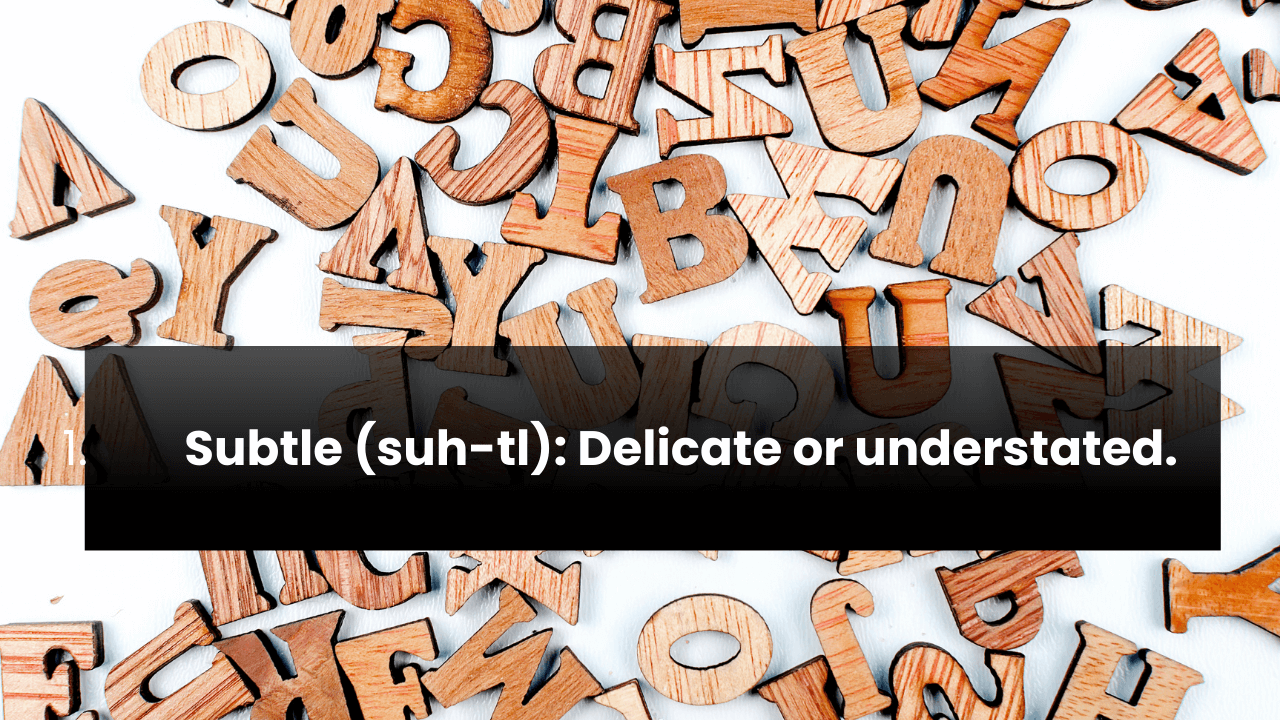
- Knack (nak): A special skill or talent.
- Debt (det): Something owed, typically money.
- Subtle (suh-tl): Delicate or understated.
- Island (eye-lund): A piece of land surrounded by water.
- Wrist (rist): The joint connecting the hand and forearm.
10. Words Borrowed from Other Languages

- Faux Pas (foh pah): A social blunder; from French.
- Entrepreneur (ahn-truh-pruh-nur): A person who starts a business; from French.
- Quinoa (keen-wah): A grain-like crop; from Quechua.
- Coup d’état (koo dey-tah): A sudden overthrow of a government; from French.
- Bungalow (bung-guh-loh): A small house; from Hindi.
11. Scientific and Technical Terms
- Photosynthesis (foh-toh-SIN-thuh-sis): The process by which plants make food using sunlight.
- Otorhinolaryngology (oh-toh-rye-noh-lar-in-GOL-uh-jee): The study of ear, nose, and throat conditions.
- Paleontology (pay-lee-un-TOL-uh-jee): The study of fossils.
- Epidemiology (ep-i-dee-mee-OL-uh-jee): The study of disease distribution and control.
- Psychology (sy-KOL-uh-jee): The study of the mind and behavior.
How to Master Difficult Words
Mastering challenging English words requires a combination of strategies tailored to both pronunciation and spelling:
1. Break Down the Word
Divide the word into smaller syllables to make it easier to pronounce and spell:
- Example: Antidisestablishmentarianism → Anti + dis + establish + ment + arian + ism.
2. Use Mnemonics
Create memorable associations to recall spellings:
- Example: For necessary, think “one collar and two sleeves.”
3. Practice Phonetics
Learn the International Phonetic Alphabet (IPA) for precise pronunciation:
- Example: Colonel is pronounced /ˈkɜːrnl/.
4. Contextual Learning
Use the word in sentences to understand its meaning and usage:
- Example: “His plans went awry due to unforeseen circumstances.”
5. Repetition is Key
Write down difficult words multiple times or say them aloud repeatedly to reinforce memory.
Tips for Improving Pronunciation
To tackle tricky pronunciations effectively, consider these expert tips:
- Listen to Native Speakers: Watch videos or listen to podcasts where native speakers use these words naturally.
- Tongue Twisters: Practice tongue twisters like “She sells seashells by the seashore” to improve clarity.
- Record Yourself: Compare your pronunciation with that of a native speaker for real-time feedback.
- Focus on Stress Patterns: Identify which syllable is stressed in a word and emphasize it correctly.
Why These Words Matter
Learning these challenging words enhances your language skills in several ways:
- It boosts your confidence in conversations, especially in professional settings.
- It improves your writing by expanding your vocabulary with precise terms.
- It fosters a deeper appreciation for the complexity and beauty of the English language.
13. Words with Confusing Vowel Sounds

- Debris (duh-BREE): Scattered fragments, typically of something wrecked.
- Gauge (gayj): To measure or estimate.
- Mauve (mohv): A pale purple color.
- Chaos (KAY-oss): Complete disorder and confusion.
- Leisure (LEE-zher): Free time for relaxation or activities.
14. Words with Double Consonants
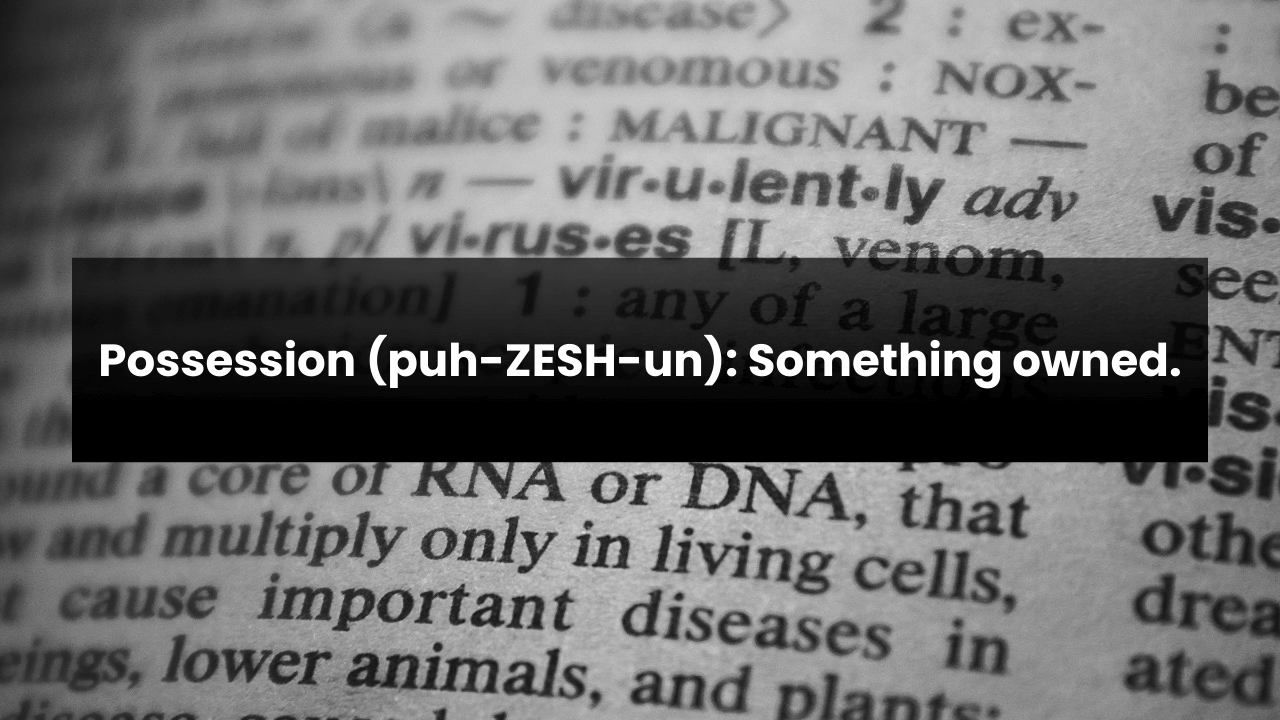
- Embarrass (em-BARE-uhs): To cause someone to feel awkward or ashamed.
- Occasion (uh-KAY-zhun): A particular event or time.
- Possession (puh-ZESH-un): Something owned.
- Accommodation (uh-kom-uh-DAY-shun): A place to stay or adjustments made for convenience.
- Misspell (mis-SPELL): To spell a word incorrectly.
15. Words with Tricky Endings

- Hierarchy (HY-er-ar-kee): A system in which people or things are ranked.
- Sergeant (SAR-jent): A military rank.
- Privilege (PRIV-uh-lij): A special right or advantage.
- Conscience (KON-shuns): An inner sense of right and wrong.
- Pronunciation (pro-NUN-see-ay-shun): The way a word is spoken.
16. Rare and Uncommon Words

- Synecdoche (si-NEK-duh-kee): A figure of speech in which a part represents the whole.
- Ephemeral (ih-FEM-er-ul): Lasting for a very short time.
- Quixotic (kwik-SOT-ik): Extremely idealistic; unrealistic or impractical.
- Ethereal (ih-THEER-ee-ul): Extremely delicate and light, almost otherworldly.
- Zephyr (ZEFF-er): A soft, gentle breeze.
17. Words That Look Different Than They Sound
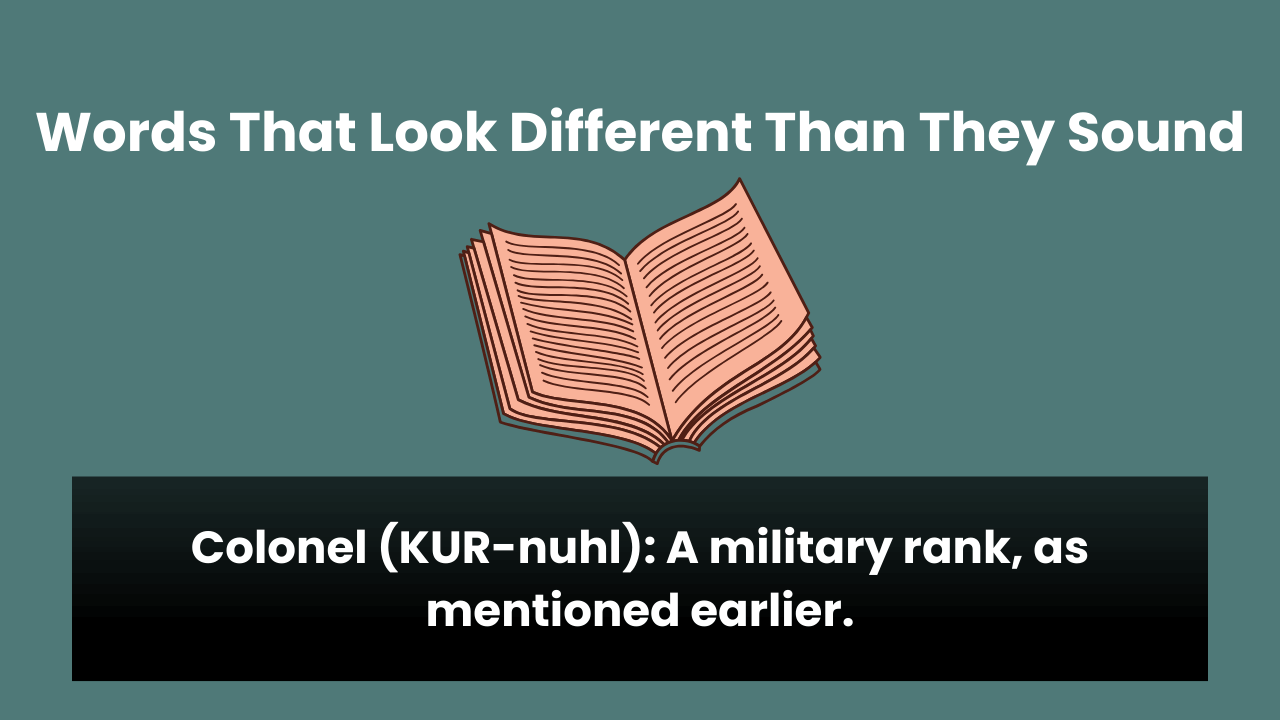
- Yacht (YOT): A medium-sized sailing boat.
- Sword (SORD): A weapon with a long metal blade.
- Colonel (KUR-nuhl): A military rank, as mentioned earlier.
- Cupboard (KUB-erd): A cabinet for storing items, often food or dishes.
- Wednesday (WENZ-day): The third day of the week.
Final Set: The Most Complex Words
- Facade (fuh-SAHD) – The front of a building; an outward appearance that hides reality.
- Paradigm (PAR-uh-dime) – A typical example or model of something.
- Camaraderie (kah-muh-RAH-duh-ree) – Mutual trust and friendship among people who spend time together.
- Bouquet (boo-KAY) – An arrangement of flowers; also used metaphorically for scents.
- Worcestershire (WUHS-ter-sheer) – As mentioned earlier, both a county in England and a famous sauce.
Final Thoughts
The journey to mastering difficult English words may seem daunting at first, but it’s incredibly rewarding in the long run. By practicing regularly, using phonetic tools, and incorporating these words into your daily conversations and writings, you’ll gradually overcome their challenges—and even come to appreciate their complexity.
So don’t shy away from these tricky terms! Embrace them as opportunities to grow your skills and deepen your love for the English language.
Happy learning!